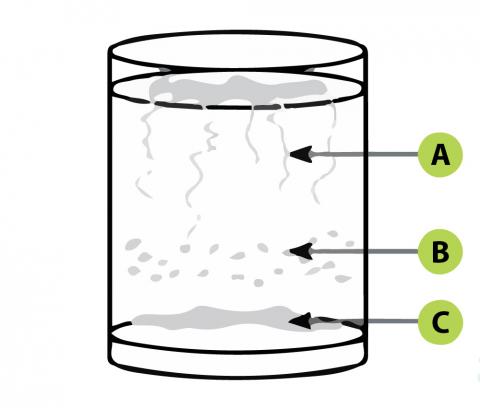Do you think you may have symptoms of Candida overgrowth like brain fog, yeast infections, and sugar and starch cravings? If you would like to learn how your symptoms relate to Candida, there are numerous Candida tests you can do at home and with your doctor.
Take the Candida Test*
 Have you been vaccinated? Do you have mercury fillings? Does your job or school cause you stress? Believe it or not, a “yes” to any of these questions could relate to Candida. The Candida Test is a free and easy questionnaire that offers a comprehensive analysis of your Candida symptoms and contributing lifestyle factors. After taking this test you will have a better understanding of the potential level of Candida overgrowth in your body and how you might begin relieving it.
Have you been vaccinated? Do you have mercury fillings? Does your job or school cause you stress? Believe it or not, a “yes” to any of these questions could relate to Candida. The Candida Test is a free and easy questionnaire that offers a comprehensive analysis of your Candida symptoms and contributing lifestyle factors. After taking this test you will have a better understanding of the potential level of Candida overgrowth in your body and how you might begin relieving it.
Take the 40-question Candida Test now! Start Test
Take the Saliva or “Spit” Test*
The Saliva Test may be a little “yucky” for some, but it is easy and convenient. Follow these simple steps and watch it work.
-
Pour bottled or purified water in a clear glass before bedtime and set it on your bedside table.
-
First thing in the morning, work up some saliva and spit it into the glass of water.
-
Check for activity every 15 minutes for 1 hour.
-
Normally, your saliva should disappear in the water.
-
If you have a Candida overgrowth issue, you will see any of these three formations:

A – Strings like jellyfish traveling down from the saliva that is floating on top.
B – Particles or cloudy specks suspended in the water.
C – Cloudy saliva sinking to the bottom of the glass.
Diagnostic Candida albicans Tests
Diagnostic Candida tests for men, women and children, are available from your doctor. These scientific lab tests include:
-
Culture Test (for skin and genital yeast infections): A small skin sample is cultured and incubated to determine the presence of yeast, which can be seen under a microscope. Elevated traces of yeast help doctors determine if a Candida infection is present in the skin. If not, further testing is required.
-
Blood Test: The blood is examined for specific antibodies related to Candida overgrowth. If antibody levels are plentiful, there is a strong likelihood of an overgrowth issue.
-
Stool Test: The stool sample is searched for traceable levels of yeast and other bacteria. Although Candida is prevalent in the gut, this test if often perceived as less reliable than the blood test.
-
Urine Test: The urine sample is tested for D-Arabinitol, which is a waste product of Candida. High levels of D-Arabinitol indicate the presence of yeast overgrowth.
Candida Test Results
Did your Candida test results confirm potential Candida overgrowth? You may want to start addressing your Candida symptoms with a Candida-control diet and other natural treatments for Candida. For persistent or severe symptoms, always seek the advice of your physician.